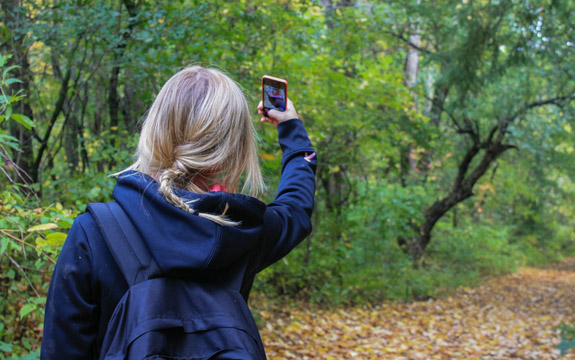Does Instagram make you a narcissist?

In Summary
- Swinburne research has found there is a relationship between narcissism and Instagram use
- Vulnerable narcissism and grandiose narcissism were examined
- Those with high levels of vulnerable narcissism had lower self-esteem
It might be time to take a break from social media. Swinburne research has found there is a relationship between narcissism and Instagram use.
Based on previous research of other social networking sites, the study argues that narcissistic tendencies such as attention-seeking and exhibitionism may be facilitated by Instagram usage, due to its specific image-based applications and functions.
Two types of narcissism, vulnerable narcissism and grandiose narcissism, were examined in the study:
- Grandiose narcissism: refers to traits such as exhibitionism, callousness, extraversion, manipulativeness, superiority, aggression, indifference and seeking of acclaim.
- Vulnerable narcissism: refers to traits of inadequacy, emptiness and shame, reactive anger, helplessness, hypervigilance to insult, shyness and interpersonal avoidance.
In the 200 participants surveyed, those with high levels of vulnerable narcissism had lower self-esteem, while those high in grandiose narcissism were high in self-esteem.
Vulnerable narcissism appears to be more strongly associated with Instagram use, with users displaying a need for admiration and being more sensitive to feedback.
Acclaim seeking was displayed by those who scored higher on grandiose narcissism.
“The behaviours I observed on Instagram myself seemed to be coming from a place of self-doubt rather than self-love,” Olga Paramboukis, who led the study while undergoing a Postgraduate Diploma of Psychology, says.
“Some participants said that positive attention for their Instagram behaviours and usage made them feel validated and approved of. It appeared that in some instances, this may have been the overall underlying goal of posting to Instagram.”
Grandiose narcissists appear to use Instagram to exhibit their superiority over others and are not overly sensitive to feedback.
“This study highlights the complexity of narcissism, and that narcissistic behaviours can come from two very different places.”
The perception of the media
Ms Paramboukis believes the media may have overblown the relationship between Instagram and narcissism to an extent, but concedes they may be on to something important.
“The media continues to highlight the cultural and societal shift that has taken place with the introduction of social media, particularly with younger generations.
“I think it's forcing us to question 'is this change for the better or can this have detrimental effects to those who use social media heavily?’ Mostly, I feel they have reinforced a negative perception of social media.”
Participants responded to an online survey which measured their level of narcissism, self-esteem along with their Instagram usage, behaviours and their feelings towards Instagram.
The study was published by Scientific Research Publishing.

